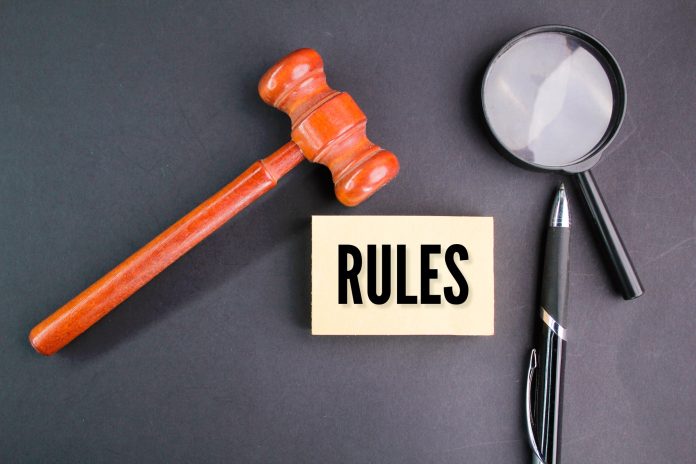Key Takeaways

- Significant Opportunities: Government contracts provide crucial financial stability for small businesses, offering access to billions of dollars in annual funding for various projects.
- Types of Contracts: Understanding different contract types—fixed-price, cost-reimbursement, IDIQ, and time-and-materials—is essential for aligning your business strategy with specific government needs.
- Research Opportunities: Utilize resources like SAM.gov and market intelligence tools to effectively identify and bid on relevant government contracts, as well as analyze agency demands and previous awards.
- Business Preparation: Ensure your business is properly registered in SAM, develop a strong capability statement, and establish relationships with government officials and prime contractors to increase your chances of success.
- Proposal Writing: Craft clear and compelling proposals that highlight your strengths and relevant experience while adhering to specific guidelines and deadlines for submissions.
- Compliance Awareness: Familiarize yourself with Federal Acquisition Regulations (FAR) and maintain your eligibility through regular updates to your business information and certifications, ensuring you meet the standards required for government contracts.
Landing a government contract can be a game-changer for your business. With billions of dollars allocated each year for various projects, tapping into this lucrative market can provide stability and growth. But navigating the maze of regulations and requirements can feel overwhelming.
You don’t have to be a large corporation to win these contracts. Small businesses often have unique advantages that can set them apart. Understanding the steps involved and knowing where to look for opportunities can make all the difference in securing the funding and projects you desire. Let’s dive into the essential strategies that will help you successfully pursue government contracts and elevate your business to new heights.
Understanding Government Contracts

Government contracts provide significant opportunities for small businesses to secure funding and establish stability. By understanding these contracts, you can effectively position your business to compete in this market.
What Are Government Contracts?
Government contracts are legally binding agreements between government agencies and businesses. These contracts involve the provision of goods, services, or construction projects in exchange for payment. Small businesses often play a crucial role in fulfilling specific government needs, which can range from office supplies to technical services.
Types of Government Contracts
Different types of government contracts cater to various business models and project requirements:
- Fixed-Price Contracts: These contracts provide a set price for a specified product or service. They minimize risk and encourage efficient performance, making them a preferred choice for many small businesses.
- Cost-Reimbursement Contracts: These contracts reimburse you for allowable costs incurred, along with an additional fee. This type allows small businesses to recover expenses and can prove advantageous for projects with uncertain costs.
- Indefinite Delivery, Indefinite Quantity (IDIQ) Contracts: IDIQ contracts provide flexibility in ordering supplies or services. They suit small businesses looking to build long-term relationships with government agencies.
- Time-and-Materials Contracts: In these contracts, you receive compensation based on labor hours and material costs. They cater well to businesses that offer consultancy services or labor-intensive projects.
Understanding these types of contracts enables you to identify which aligns best with your small business strategy.
Steps to Get Government Contracts

Understanding the steps to secure government contracts is crucial for running a small business. By systematically researching opportunities and preparing your business, you can navigate the complexities of the bidding process effectively.
Researching Opportunities
- Utilize Federal Databases
Use SAM.gov (System for Award Management) to identify and bid on federal contracts. SAM is the primary database that lists vendors engaged with the federal government, providing you with a direct link to available government contracts.
- Market Intelligence Tools
Leverage tools like GovWin IQ and Dynamic Small Business Search (DSBS) to gain insights into government spending trends and procurement patterns. These resources help predict upcoming contract opportunities and offer competitor profiles, enabling you to tailor your small business strategies effectively.
- Analyze Agency Needs
Study the demands and spending trends of target federal agencies. Review previously awarded contracts to grasp the types of goods and services in demand. This understanding will position your small business to meet the specific needs of these agencies.
Preparing Your Business
- Register Your Business
Complete your registration in SAM and ensure your business details are accurate. This registration is essential for bidding on government contracts and receiving payments.
- Develop a Capability Statement
Create a concise capability statement that highlights your small business’s unique offerings and experience. This document should focus on your core competencies and past performance to appeal to potential government clients.
- Establish Relationships
Network with government officials and prime contractors. Building connections can provide insights into upcoming opportunities and foster partnerships that enhance your chances of securing contracts. Attend industry events and leverage online platforms to increase visibility.
- Prepare for Compliance
Familiarize yourself with federal regulations and compliance requirements. Being knowledgeable about these aspects ensures your small business can meet the necessary standards when bidding for government contracts.
Navigating the Application Process

Securing government contracts involves a structured application process. Follow these essential steps to enhance your chances of success.
Registration Requirements
To do business with the federal government, register with the System for Award Management (SAM). Registration confirms your eligibility and provides access to federal contract opportunities. Maintain your registration by updating it annually and ensuring your information is current. Additionally, check for compliance with all required certifications, such as the Small Business Administration (SBA) requirements, which can boost your competitive edge in government contracting.
Proposal Writing Tips
Writing a compelling proposal is crucial for winning contracts. Highlight your small business’s strengths, showcasing relevant experience and past performance. Clearly outline your approach to fulfilling the contract’s requirements, emphasizing how your solution meets the government’s needs. Use straightforward language and stick to the specific format requested in the solicitation. Ensure all sections are complete and adhere to submission deadlines. Always proofread for clarity, precision, and professionalism to convey reliability and capability.
Compliance and Regulations

Understanding compliance and regulations is vital for securing government contracts. Adhering to specific guidelines ensures you remain eligible and competitive within this lucrative market.
Understanding FAR Requirements
Understanding the Federal Acquisition Regulation (FAR) is essential for any small business seeking government contracts. FAR outlines the rules and regulations governing federal contracting. Familiarize yourself with FAR clauses relevant to your industry and the types of contracts you pursue. Compliance with these clauses is crucial, as they dictate standards for contract performance, cost accounting, and contractor responsibilities. Regularly reviewing FAR updates helps maintain your competitive edge in securing government contracts.
Maintaining Eligibility
Maintaining eligibility is critical for small businesses competing for government contracts. Regularly verify your registration in the System for Award Management (SAM) to ensure it reflects accurate information about your business. Update your D-U-N-S Number and any pertinent certifications, such as those from the Small Business Administration (SBA). This ongoing diligence ensures you meet small business standards and any specific requirements set forth by government agencies. In addition, actively engaging in networking opportunities and bureaucratic events keeps your business informed about upcoming contract opportunities, further solidifying your standing in the contracting community.
Conclusion

Securing government contracts can be a game-changer for your business. By understanding the intricacies of the contracting process and utilizing the right tools and strategies, you can position your business for success.
Stay proactive in your research and maintain compliance with all regulations. Building relationships within the government sector will also enhance your visibility and credibility.
With dedication and the right approach, you can tap into the vast opportunities available through government contracts, driving growth and stability for your business.
Frequently Asked Questions

What are the benefits of securing government contracts for businesses?
Securing government contracts offers businesses access to billions of dollars in funding for various projects. This helps in achieving financial stability, enhancing brand credibility, and fostering business growth. Government contracts often provide a consistent source of revenue, enabling businesses, especially small ones, to thrive in competitive markets.
How can small businesses compete for government contracts?
Small businesses can compete by leveraging their unique advantages, such as flexibility and innovation. They should research opportunities, register in SAM, and develop strong relationships with government officials. Understanding the needs of federal agencies and preparing tailored proposals is essential for standing out in the bidding process.
What types of government contracts are available?
Government contracts include Fixed-Price Contracts, Cost-Reimbursement Contracts, Indefinite Delivery/Indefinite Quantity (IDIQ) Contracts, and Time-and-Materials Contracts. Each type serves different business models and project requirements, allowing small businesses to choose options that align with their capabilities and strategies.
What is the registration process for government contracts?
To secure government contracts, businesses must register in the System for Award Management (SAM). This registration confirms eligibility and grants access to contract opportunities. It’s important to keep this registration up to date and renew necessary certifications to maintain eligibility.
How can businesses enhance their proposal writing for government contracts?
Businesses should focus on clarity, professionalism, and adherence to solicitation formats in their proposals. Highlighting strengths, relevant experience, and clear approaches to fulfilling requirements can significantly enhance their chances of winning government contracts.
Why is understanding compliance and regulations important for government contracting?
Understanding compliance and regulations, particularly the Federal Acquisition Regulation (FAR), is vital for maintaining competitiveness in government contracting. Familiarity with relevant FAR clauses helps businesses navigate bidding requirements successfully and avoid potential legal pitfalls.
How can businesses stay informed about contract opportunities?
Businesses can stay informed by engaging in networking opportunities, attending bureaucratic events, and regularly checking federal databases like SAM.gov. Utilizing market intelligence tools such as GovWin IQ can also provide insights into government spending trends and upcoming contract opportunities.
Image Via Envato: katchanatsarin, cait00sith, fauziEv8, Media_photos, indypendenz, coolhand1180, nuttapong_mohock



